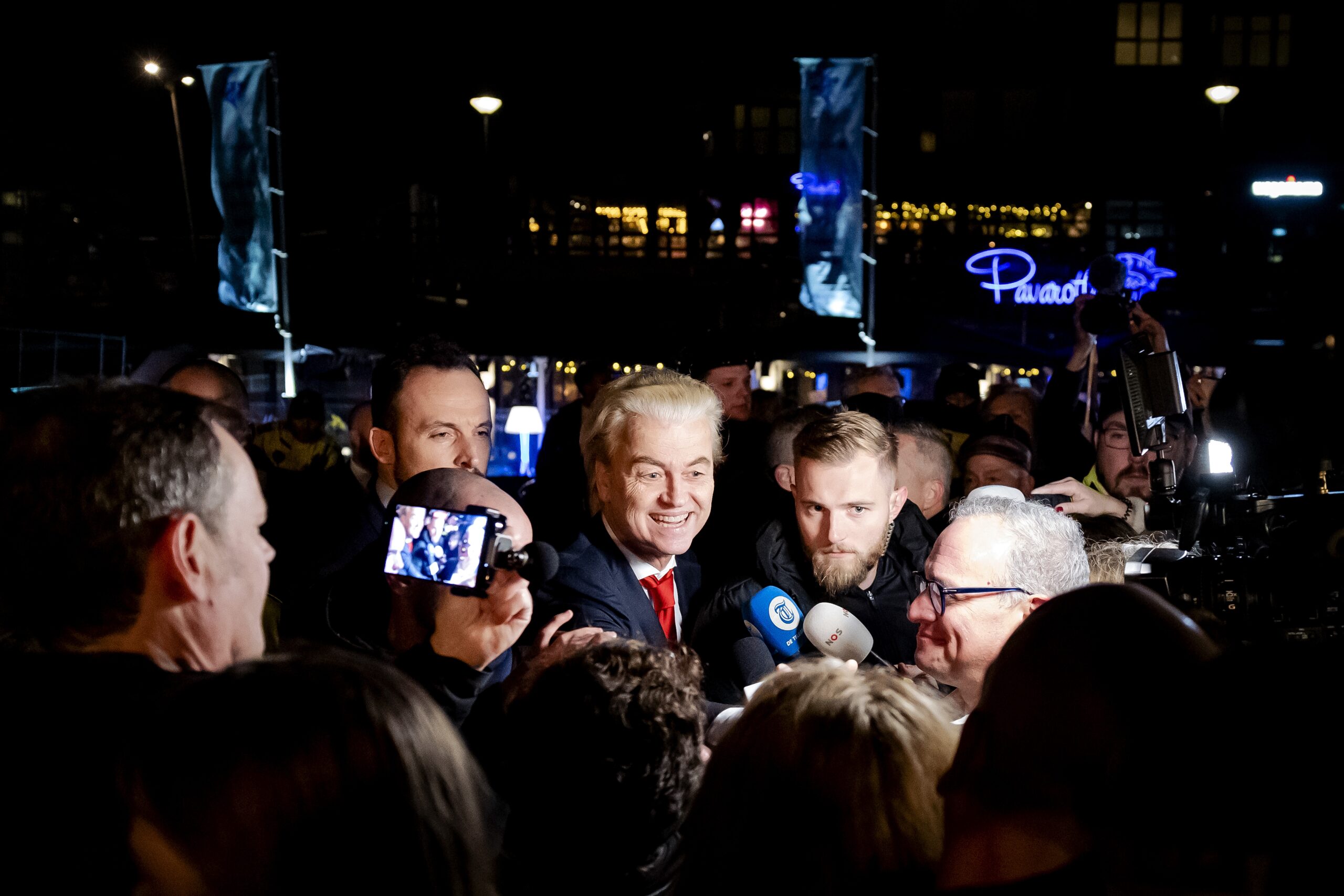Raised eyebrows at Geert Wilders’ Kijkduin refugee visit

The leaders of two parties that could form a right-wing coalition with the far right PVV have both expressed their surprise at party leader Geert Wilder’s backing for an anti-refugee protest on Tuesday evening.
Wilders paid a lightning visit to the protest at the seaside resort of Kijkduin, where up to 120 asylum seekers are being housed in a hotel. The asylum seekers were placed there at the weekend because of the shortage of beds at the Ter Apel reception centre.
Wilders, who did not go into the information evening organised by The Hague city council because of “security concerns”, told reporters outside he was there to “give a boost” to the protestors.
He said he often attended similar gatherings in towns and villages that are being “flooded” by asylum seekers who live in “rooms with big televisions, swimming pools, free food and drink and heating, which many Dutch people don’t have.”
He also repeated his wish for a “total stop” on refugees coming to the Netherlands.
The visit and comments have led to raised eyebrows among other politicians, given talks on forming a new government are about to begin. Wilders’ party is by far the biggest in the new parliament and that means he has taken the lead in putting a coalition together.
Potential partner and NSC leader Pieter Omtzigt described the visit as “special” while adding that Wilders is free to do what he wants. Caroline van der Plas from BBB, also likely to join an eventual PVV-led cabinet, told reporters “personally, I would not have done it. I would say, let us focus on the formation process.”
The Hague’s mayor Jan van Zanen said later that Wilders is welcome to show his involvement but that Kijkduin “is not the place for a party political circus.”
“Whatever the election result last week, these people should not be left to sleep on the grass,” he said.
Accommodation shortage
Refugee settlement agency COA said earlier this week it is to step up pressure on councils to prevent a backlog of cases this winter.
The COA agency said it would contact 45 municipalities that are failing to meet their obligations to provide shelter under a plan agreed between local mayors and provinces earlier this month.
The plan was drawn up to try to relieve pressure on the reception centre in Ter Apel, Groningen, where 2,500 people are currently staying in a facility that has a maximum capacity of 2,000.
The COA said on Tuesday that it costs an average of €27,100 a year to put a refugee up in normal accommodation but €53,400 for an emergency bed. Refugees are currently being put up at 140 temporary locations.
Thank you for donating to DutchNews.nl.
We could not provide the Dutch News service, and keep it free of charge, without the generous support of our readers. Your donations allow us to report on issues you tell us matter, and provide you with a summary of the most important Dutch news each day.
Make a donation